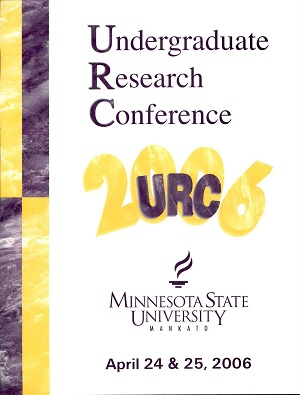Graduate Assistant Mistreatment: Students or Employees?
Location
CSU 204
Start Date
24-4-2006 1:30 PM
End Date
24-4-2006 3:00 PM
Student's Major
Communication Studies
Student's College
Arts and Humanities
Mentor's Name
Brian Klosa
Mentor's Department
Communication Studies
Mentor's College
Arts and Humanities
Description
In 2005 there were over two hundred and sixty thousand Graduate Assistants, or OAs in the United States. Graduate Assistants accepted positions as GAs hoping to gain valuable experience in the educational setting, but find out that when they leave universities they leave with massive debt and without the skills needed to succeed outside of academia. In a study of Graduate [Assistant] Treatment referenced in the July, 2005 edition of Physics Today, abuse and exploitation were commonly used to describe GA treatment. The article concluded, "when abuse has become habitual and acceptable, then it is no longer perceived as unethical. Instead, it is perceived as business as usual." GAs have been systematically abused in the academic setting, without a vehicle to change their situation. In an attempt to give graduate assistants the rights they deserve, the problems with the current system must first be identified, then the causes must be understood, before finally discussion solutions to ensure these workers can attempt to receive fair treatment.
Graduate Assistant Mistreatment: Students or Employees?
CSU 204
In 2005 there were over two hundred and sixty thousand Graduate Assistants, or OAs in the United States. Graduate Assistants accepted positions as GAs hoping to gain valuable experience in the educational setting, but find out that when they leave universities they leave with massive debt and without the skills needed to succeed outside of academia. In a study of Graduate [Assistant] Treatment referenced in the July, 2005 edition of Physics Today, abuse and exploitation were commonly used to describe GA treatment. The article concluded, "when abuse has become habitual and acceptable, then it is no longer perceived as unethical. Instead, it is perceived as business as usual." GAs have been systematically abused in the academic setting, without a vehicle to change their situation. In an attempt to give graduate assistants the rights they deserve, the problems with the current system must first be identified, then the causes must be understood, before finally discussion solutions to ensure these workers can attempt to receive fair treatment.
Recommended Citation
Randall, Joshua. "Graduate Assistant Mistreatment: Students or Employees?." Undergraduate Research Symposium, Mankato, MN, April 24, 2006.
https://cornerstone.lib.mnsu.edu/urs/2006/oral-session-F/5




